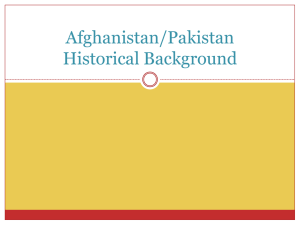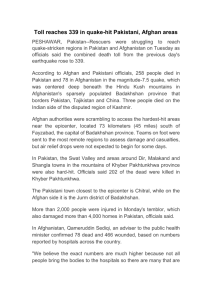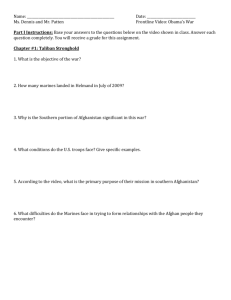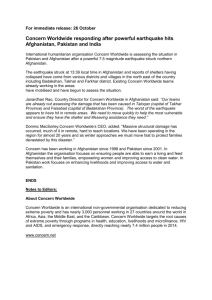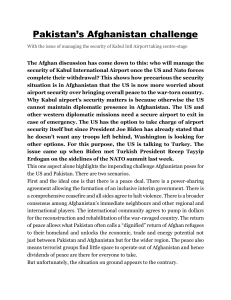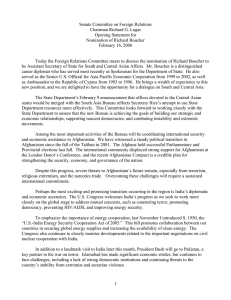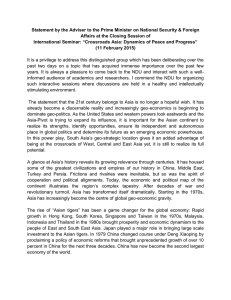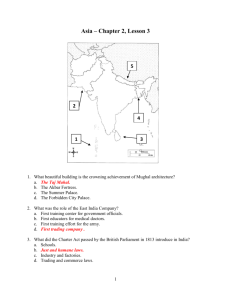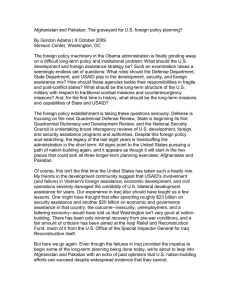Document
advertisement
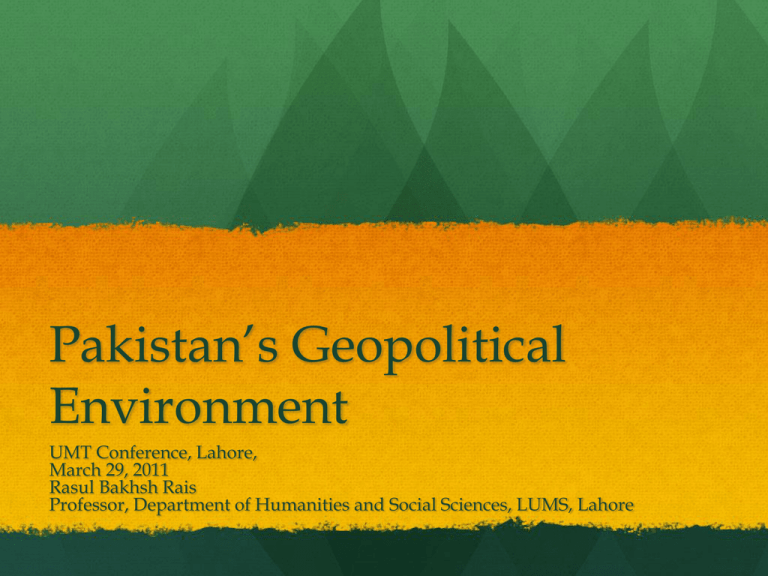
Pakistan’s Geopolitical Environment UMT Conference, Lahore, March 29, 2011 Rasul Bakhsh Rais Professor, Department of Humanities and Social Sciences, LUMS, Lahore Regional Geopolitical Structure China as an emerging global power Indian ambitions, power and economic growth American and Western presence in Afghanistan Cycles of war in Afghanistan and impact on the region and Pakistan The Arab spring, peoples vs. the elites International Power Structure From bipolarity to American dominance The end of the cold war and ‘end of history’ The new liberal order, the Washington Consensus New Western interventionism—Afghanistan, Iraq, and Libya Hegemonic regime, order, security and stability India as an emerging Power Economic growth and military might Strategic partnership with the United States Quest for regional hegemony Pakistan’s security dilemma Pakistan’s India challenge growing more complex The New American Strategy 2009 The deployment of 30,000 additional US troops, backed by expected 10,000 from Nato states, raise foreign troops to 140,000. An emphasis on securing cities and trunk-roads Increased effort to train the Afghan army and police, and expand their numbers More money in civil development assistance Closer working relationship with Pakistan Withdrawal within two years, beginning 2011 The Odds against Success The time factor, on whose side the time is? Will the Americans stay for a long war? Will the Afghan state be able to stand on its feet? Can the Afghan hearts and minds be won? Is insurgency changing into insurrection? Pakistan’s Strategic Concern Long war would keep Pakistan on the boil Cut and run will encourage Taliban and extremists A non-neutral Afghanistan will remain a source of trouble for Pakistan Political approach must move some notches up on the rank order of things Final Thoughts The war cannot be won by military means alone The Taliban and the foreign powers may reach a grand compromise—not unthinkable Neutralizing Afghanistan’s geopolitics Rethinking Relationship with India The Domestic challenges—terrorism, political violence and democratic stabilit
